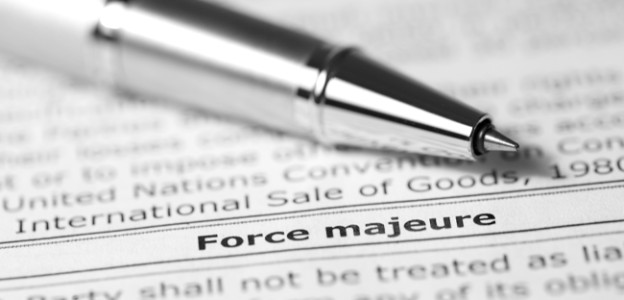25 August 2021
Cash Is King: Recovering Outstanding Debts
Authors

With an increased focus on cash flow in the current economic climate, what options do creditors have for recovering outstanding debts?
The impact of Covid-19 on the economy brings about the inevitable reality that a significant number of businesses will suffer financial difficulties as a result, and at worst, may completely fail. An increased focus on cash flow, including robust debtor policies and procedures, will be critical for businesses during this economic downturn.
A low-hanging fruit for many businesses will be to focus on debts that are already outstanding and to tighten up on their debtor policies and procedures. There are a number of options open to creditors that find themselves dealing with businesses or customers that are failing to pay their debts on time. Below we have summarised some of the options that are available.
Negotiation
In the first instance, we recommend that you make contact with your debtor to check on their position and to see whether some form of negotiation is possible. It is important to keep in mind the following:
If the debtor completely fails that may leave you in a worse position, so in some circumstances it can be advantageous to work with them to try and reach a solution that enables them to trade out of the situation they find themselves in and for you to recover your debt.
The ongoing relationship that you may have with the debtor, particularly where it is a long term relationship such as between a commercial landlord and tenant. Has the debtor generally paid on time in the past or have there been issues previously?
Depending on your terms of trade or the nature of any agreement with the debtor, there may be unrecoverable debt collection costs incurred in pursuing the debtor.
If you are unable to negotiate a suitable solution then you can consider the below options.
Letter of Demand
We usually advise that you send to the debtor a letter of demand as the first step. When we draft a letter of demand we set out what is owing and the obligation of the debtor to pay, as well as the consequences of not paying. This can sometimes result in payment of the debt without having to undertake any further steps. It may also lead into the negotiation process discussed above.
Statutory Demand
If the debtor is a company and the debt is undisputed, then the statutory demand process under the Companies Act 1993 will be available. A statutory demand is a document issued under the Act that specifies the amount that is owed and it is served on the company/debtor. The company is then required to do one of two things:
If it opposes the statutory demand (i.e. it disputes the debt), it has 10 working days to apply to the High Court to set aside the demand (the timeframe for this is strict and the Court cannot extend it); or
It has 15 working days to make payment of the amount demanded (the Court does have some flexibility to extend this timeframe).
If a company fails to take either of the above steps, then the remedy that becomes available to the creditor is to apply to liquidate the company on the basis that the failure to comply with the statutory demand is evidence that the company is unable to pay its debts as they fall due. Creditors will often issue a statutory demand in the hope that it will put pressure on the debtor to make payment of the debt. While a statutory demand can be an effective debt recovery tool in this respect, it is important to keep in mind that it will not result in a judgment from the Court for the sum sought – it merely gives the creditor grounds to apply to liquidate the company/debtor.
Finally, the statutory demand process should only be used:
Where the amount demanded is a liquidated demand (for example an outstanding invoice for a fixed amount) and it isn’t something that requires the Court or some third party to determine how much is owing (for example a claim for compensation).
Where the debt is not (genuinely) in dispute.
Court Process
If the debtor is a natural person then the statutory demand process under the Companies Act will not be available. In that case you will need to look to the court process. Even if the debtor is a company in some circumstances it may be preferable to utilise the court process, in particular where:
the debt is disputed;
there is a claim for damages which the Court will need to determine; or
a director or another party has provided a personal guarantee and you want to issue the court proceedings against the company and the personal guarantor.
Jurisdiction
For the purposes of general debt recovery claims in New Zealand there are three first instance tribunal/courts that are available:
The Disputes Tribunal which can hear disputes that do not exceed a value of $30,000.
The District Court which can hear claims that do not exceed a value of $350,000.
The High Court which can hear claims of any value.
While the Disputes Tribunal can be a cost-effective solution for smaller claims, it is important to note that it can only hear claims where there is a dispute. You cannot use the Disputes Tribunal to recover an undisputed debt.
Procedure
There are three procedures that are available in the courts that are useful for the purposes of debt recovery:
Judgment by default: if the debtor fails to file a defence with the court within 25 working days of being served with your claim and the amount sought is a liquidated demand (for example an outstanding invoice) then you can apply for a judgment from the Court without having to appear in court.
Formal proof hearing: if the debtor fails to file a defence with the court within 25 working days of being served with your claim and the amount sought requires quantification from the court (for example a claim for damages) then you can apply for a formal proof hearing (a hearing where the court determines the amount of damages on the basis of evidence produced by you). Once an application for a formal proof hearing has been made, the defendant/debtor cannot file a defence without the permission of the court.
Summary judgment: if the debtor defends the claim (or you expect that they will defend the claim), but you do not believe they have a genuine defence to it, then you can apply for summary judgment (depending on the court you may need to make this election at the time of filing your claim). If this is opposed by the debtor you will then have to demonstrate to the court why the debtor has no genuine defence and, therefore, judgment should be granted at this preliminary stage.
Enforcement
Once judgment has been obtained against a debtor, if payment of the judgment sum is not paid the next step is to enforce the judgment. Some examples of enforcement options are:
Attachment order: this is an order directing that money due under a judgment is a charge on any salary or wages that are due and payable by an employer to the liable party. The employer becomes liable to deduct from the salary or wages a sufficient amount to satisfy the charge. This is only available where the liable party is a natural person.
Charging Order: this is an order that attaches to the interest that a liable party has in the property (real or personal) specified in the order. For example, it could attach to a house that the liable party owns. With limited exceptions, the charging order remains in place until the judgment sum has been paid and it prevents the property being sold in the interim.
Sale Order: this is an order requiring an enforcing officer to seize all of the liable party’s personal property (with limited exceptions) and to sell that property to satisfy the judgment sum. The enforcing officer can also sell the liable party’s interest in any land to satisfy the judgment sum.
Possession Order: this is an order authorising and requiring an enforcing officer to deliver possession of the land or chattels described in the order to the person named in the order. This is issued where a judgment orders a party to deliver possession of land or chattels to another party.
Bankruptcy: if the debtor is a natural person, then you can apply to have the debtor adjudged bankrupt if the judgment sum is not paid. While this will usually be a step of last resort, if the debtor has access to money held by another entity (for example, money held in trust) the threat of bankruptcy proceedings can result in the debtor making that money available if they want to avoid the consequences of bankruptcy.
Statutory Demand/Liquidation: if the debtor is a company, once a judgment has been obtained, any amount payable under that judgment is a liquidated demand that can be demanded by way of a statutory demand. This can be followed by an application for liquidation if the demand is not complied with, as discussed above.
The above is a brief overview of some the enforcement options that are available. The government has recently announced insolvency relief for some businesses affected by Covid-19 that will in certain circumstances provide for temporary relief from enforcement action (sole traders are not included). More information about this relief can be found on the Companies Office website.
Contractual Dispute Resolution Provisions
Finally, before considering the court process, you will need to check any agreement that you may have with your debtor to see if it provides for alternative dispute resolution (such as mediation or arbitration). It may be that you have to utilise this process instead of the court process. However, in most cases there is usually an exception for urgent relief (in fact the Arbitration Act 1996 reserves the right for a party to seek interim measures from a court) or for claims in relation to liquidated demands (for example, the standard Auckland District Law Society Deed of Lease provides an exception for court proceedings in the case of non-payment of rent or other monies under the lease).
Court Response to Covid-19
Given the current lockdown situation there are some practical difficulties that do arise. At this stage, the Chief Justice has been clear that the courts will continue to operate at any alert level. However, there are restrictions on the matters the courts will deal with, particularly during Alert Level 4. Each of the courts has a protocol which outlines modified procedures for filing and court hearings, and identifies priority hearings during the lockdown.
Terms of Trade
Given the difficulties that are currently being faced by many businesses it is a timely reminder to ensure that you have adequate and appropriate terms of trade. It is at times like this that a well drafted set of terms of trade, as well as good debtor policies and procedures, will pay dividends.
Some points to think about are:
Terms that deal with the ability to recover debt recovery costs, such as legal fees.
Details around when your invoices must be paid by.
The default interest rate that will be charged, and when and how interest will accrue.
Whether or not you require a personal guarantee if the customer is a company.
Whether you require security.
Alternative dispute resolution provisions, and whether they are appropriate.
It is also important that you use your terms of trade. We deal with a number of situations where businesses have terms of trade, but they have not provided them to the customer at the relevant time or they have failed to have documents signed by the customer where necessary. This can create difficulties further down the track and again emphasises the need to have robust debtor policies and procedures.
Insolvent Transactions
As a final point, if you have concerns about the solvency of the debtor, it is important to be aware that in certain circumstances a liquidator or official assignee may have the ability to claw back payments made by the debtor to you where the payments have been made at a time when the debtor was insolvent. This can apply to personal and corporate debtors and there are various provisions under the Companies Act 1993, Insolvency Act 2006 and Property Law Act 2007 that are relevant. If you have concerns about this, we can discuss with you how the relevant provisions might apply in your situation.
Conclusion
The current economic climate presents a number of difficulties for businesses. When disputes arise, we recommend that parties try and negotiate outcomes in the first instance if possible (either directly or through their lawyer) as that will resolve matters more quickly and it will help to minimise legal costs. Depending on the particular circumstances you should also keep in mind the ongoing relationship that you may have with the debtor.
Having said that, if action needs to be taken, the above options are available and it is important to bear in mind that if a debtor is failing to pay you they may be failing to pay other creditors as well. The old adage that the ‘squeaky wheel gets the oil’ is very applicable and immediate action is often critical in times like this.
Disclaimer
The above information is of a general nature only. The information in this article does in no way constitute legal advice and all readers should contact a law firm for advice relating to your specific circumstances.








